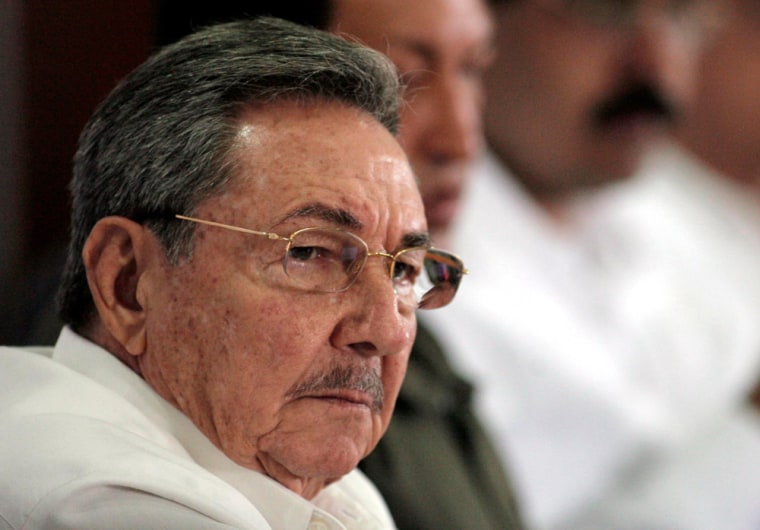Fidel Castro says President Barack Obama "misinterpreted" his brother Raul's remarks regarding the United States and bristled at the suggestion that Cuba should free political prisoners or cut taxes on dollars people send to the island.
Raul Castro touched off a whirlwind of speculation last week that the U.S. and Cuba could be headed toward a thaw after nearly a half-century of chilly relations. The speculation began when the Cuban president said leaders would be willing to sit down with their U.S. counterparts and discuss "everything, everything, everything," including human rights, freedom of the press and expression, and political prisoners.
Obama responded at the Summit of the Americas by saying Washington seeks a new beginning with Cuba. But as he prepared to leave the summit Sunday, Obama also called on Cuba to release political prisoners and reduce taxes on remittances from the U.S.
That appeared to enrage Fidel Castro, 82, who wrote in an essay published Wednesday that Obama "without a doubt misinterpreted Raul's declarations."
The former president appeared to be throwing a dose of cold water on growing expectations for improved bilateral relations — suggesting Obama had no right to dare suggest that Cuba make even small concessions. He also seemed to suggest too much was being made of Raul's comments about discussing "everything" with U.S. authorities.
Enormous influence
Fidel Castro's remarks put into doubt the true meaning of his brother's statements and raised questions about Cuba's position on detente with the United States. Although he surrendered the presidency to Raul in February 2008, he retains enormous influence and remains head of Cuba's Communist Party.
Raul Castro himself, meanwhile, has not jumped in to clarify the confusion and is not likely to, out of respect for his older brother.
"When the President of Cuba said he was ready to discuss any topic with the U.S. President, he meant he was not afraid of addressing any issue," Fidel Castro wrote of his 77-year-old brother, who succeeded him as president 14 months ago.
"That shows his courage and confidence in the principles of the Revolution," Fidel wrote.
"No one should feel astonished that Raul spoke about pardoning those who were convicted on March, 2003, and about sending them all to the United States, should that country be willing to release the Five Cuban Anti-Terrorism Heroes," Castro wrote, referring to five Cubans serving espionage sentences in the U.S.
Fidel also defended Cuba's right to levy a 10 percent fee on every U.S. dollar sent to relatives on the island by Cuban-Americans, saying if the money arriving from abroad "is in dollars, all the more reason we should do it because it is the currency of the country that blockades us."
'New era'
All top Cuban leaders routinely call the 47-year-old trade embargo against this country a blockade.
"Not all Cubans have family members overseas that send remittances," Castro wrote, adding that Cuba uses the revenue from fees on exchanging dollars to provide free health care, education and subsidized food to all of its population.
The ex-president has previously expressed admiration for Obama, but this time he blasted the new U.S. president for showing signs of "superficiality," and called on him to wait no longer before lifting the U.S. trade embargo against Cuba.
"We are living in a new era. Changes are unavoidable. Leaders just pass through; peoples prevail," Castro wrote.
More on Cuba
